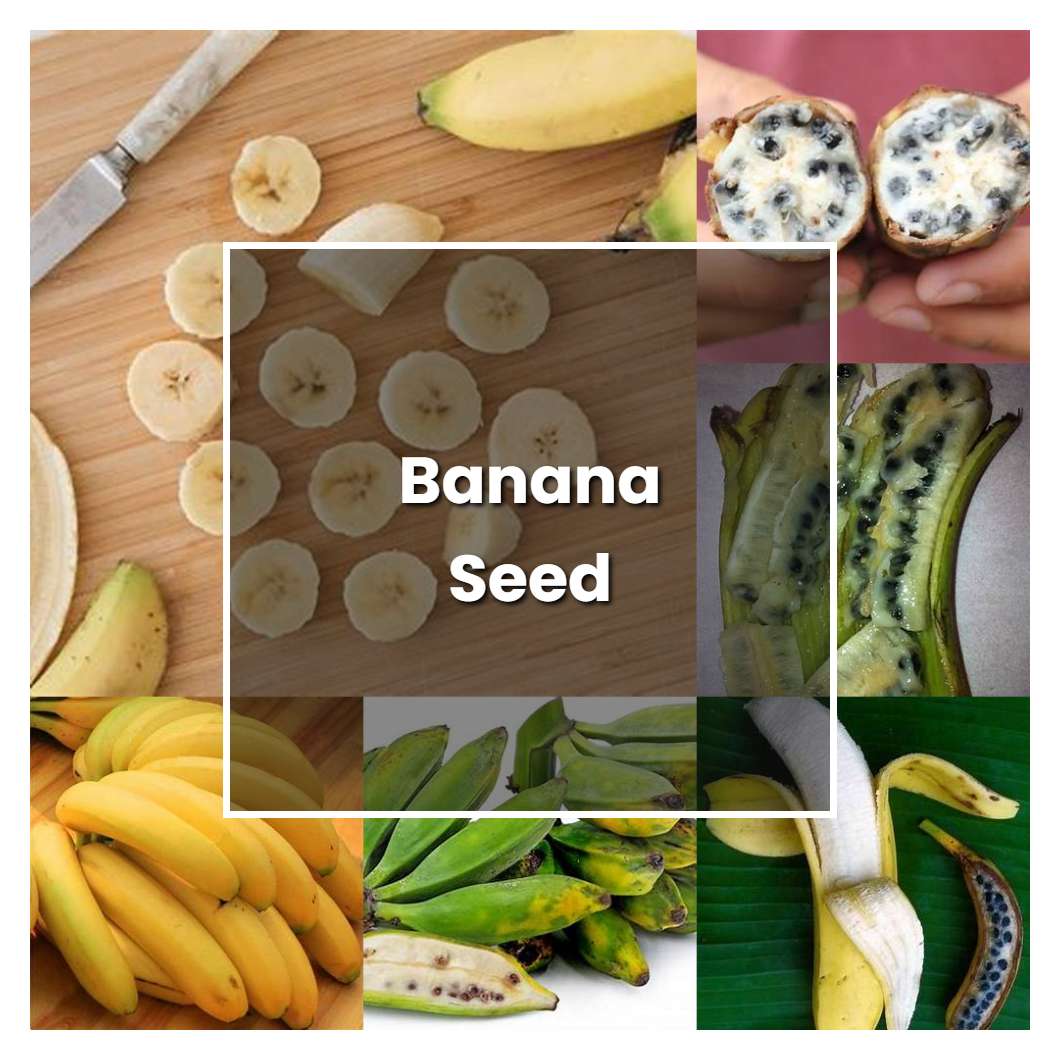Banana seed is a plant that is used to produce bananas. The plant is native to the tropical regions of the world, and it is one of the most important crops in the world. The plant is grown in more than 100 countries, and it is the fourth most important crop in the world.

Related plant:
Banana Plant Indoor
About soil condition, banana seed won't grow in dry or acidic soil. it need s a well drained, rich, and loamy soil to support its growth. The soil should be high in organic matter and remain moist but not soggy.
Just like other plants, banana trees need sunlight to grow. They require at least six hours of sun each day to produce fruit. Banana trees are native to tropical regions and do not tolerate cold weather. If the temperature gets too cold, the tree will die.
The temperature condition that is most ideal for growing banana seeds is between 77 and 86 degrees Fahrenheit. The soil should be moist, but not soggy, and well-drained. Partial shade is also best for young plants. Once the seedlings have grown a few inches, they can be moved to an area with full sun.
Ideal humidity condition for this plant is 50-70%. The plant cannot tolerate humidity lower than 40% for a long time. If the humidity is too high, the leaves will turn yellow and the plant will stop growing.
Discussing fertilizer, this plant requires a high amount of potassium for best growth. A good mix would be one-third cup of 10-10-10 fertilizer for each plant. If you are using banana trees as a living fence, you can add one cup of dolomite lime to the fertilizer mix to help keep the leaves green. As for the roots, they are rather delicate and should not be disturbed if at all possible.
Pruning is an important part of plant care. It helps the plant to direct its energy to the parts that need it the most. It also helps to keep the plant healthy and looking its best. When pruning a banana plant, it is important to remove any dead or dying leaves. You should also remove any leaves that are damaged or diseased. You should also trim back any leaves that are growing too close to the ground.
Propagation is the process of reproducing plants from a variety of sources, including seeds, bulbs, and cuttings. Banana seeds are relatively easy to propagate, and the plants they produce are typically hardy and disease-resistant. To propagate banana seeds, simply plant them in a pot or container filled with moist, well-drained soil. Place the pot or container in a warm, sunny location, and water the soil regularly to keep it moist. Within a few weeks, the seeds should germinate and the plants will begin to grow.
Usually, the plant growth rate is around two to three weeks. Some may grow a bit faster while others may take a bit longer. All in all, it doesn't take very long for banana seeds to germinate and start growing into new plants. Once they have germinated, they will need to be transplanted into soil so that they can continue to grow. With proper care, these new plants can produce fruit in as little as six months.
Common problems for this kind of plant germination are: 1. The seed may be old and no longer viable. 2. The seed may be damaged, such as by insects or fungi. 3. The seed may not have been stored properly, resulting in poor germination. 4. The seed may be of a poor quality. 5. The growing conditions may be unsuitable, such as too much or too little water, temperature, or light.
Source:
Bananas | The Nutrition Source | Harvard T.H. Chan School of
Banana | Diseases and Pests, Description, Uses, Propagation
Fruit of the month: Bananas - Harvard Health
